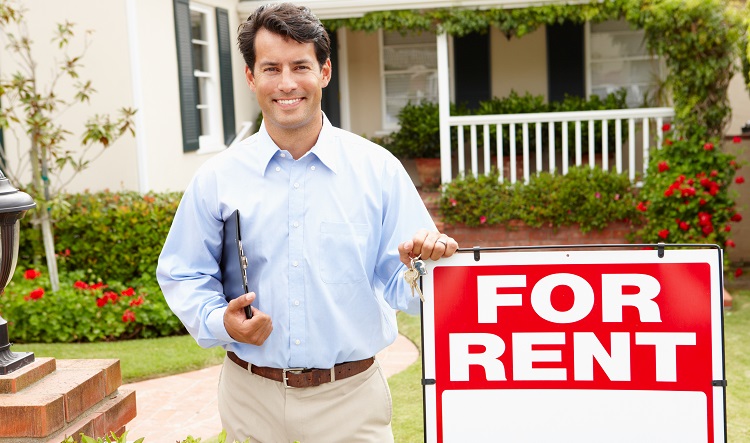Safety Tips & Best Practices for Property Owners

June is not only the beginning of summer—it’s National Safety Month! This makes June the perfect time to assess the safety of your property. As a rental property owner, not only do you have to consider your building’s physical condition, but also keep in mind the safety of your residents, your business, and yourself.
Here are a few tips for keeping your rental property business in tip-top condition:
Protecting your building
One of your biggest concerns is keeping your building safe, especially from fire. When reviewing your property’s fire safety, consider the following:
-
Replace the batteries in smoke detectors and test them every six months, documenting all maintenance work.
-
Prohibit grilling on balconies and decks, as it poses a serious fire hazard. Require that grills are kept at least 10 feet from the building and include grill-use policies in your bylaws.
-
Provide fire extinguishers in common areas and areas prone to fire, such as boiler rooms and laundry rooms. Service the extinguishers annually and document all maintenance.
-
In the laundry room, keep dryer vents clear of lint.
-
Water damage is another concern in laundry rooms. One way to reduce the chances of water damage is to use heavy hoses reinforced with steel for washing machines.
Outside, unmaintained trees can cause serious damage to your building. While tree branch damage may be as minor as scratched paint, it could escalate to broken windows in the event of high winds. Cutting back tree branches when they get too close to the building can help mitigate these issues. Keeping gutters clean can prevent overflows and ice damming. This is best done right before winter and after leaves have fallen.
Protecting your tenants
Common areas are a great place to start when considering tenant safety. To keep the wrong people from entering the property, install self-closing doors with automatic locking devices to all common area entrances. Keep common areas well-lit and clear of clutter to reduce the risk of tripping. To ensure safe passage in emergencies, never block an escape route or exit door.
In units, install carbon monoxide detectors and document their maintenance. Install GFCI circuit breakers in areas where an electrical outlet is within six feet of water. When new tenants will be moving in, check that all doors and windows lock properly and encourage tenants to lock them. Promptly make repairs and check with tenants to ensure their satisfaction.
Outside, keep parking lots well-lit, ideally with motion-activated lights. Sidewalks and parking lots should be free of tripping hazards like heaved sidewalks and potholes. Although it’s summer, remember to stock up on salt and snow-removal equipment if you live in a snowy area, so you're ready when the snow starts to fly in late fall. Ensure addresses are clearly visible and legible to emergency response services.
Conduct background screening on all tenants and employees. Help your tenants feel safer and prevent intruders by making your staff easily recognizable with ID badges and uniforms.
Protecting yourself
Because you work with unfamiliar people often, personal safety is essential in the rental property business. Meet potential renters in a public place before taking them to the rental property or unit. Always show properties during daylight hours and let a friend or family member know when you are doing a showing and how long it should last. Allow the potential renter to enter the unit and rooms first and never let them go anywhere in the unit alone. Rather than using your personal address for payment, use a PO box or drop box instead.
Protecting your business
Your business is your livelihood. Here are a few ways to protect it:
-
Encourage your tenants to carry renters insurance such as that offered by Acuity. Reminding your tenants that this coverage is for them and protects their belongings is a great way to incentivize them to purchase.
-
Review your insurance policy with your insurance agent annually, evaluating your coverages and limits.
-
While you are reviewing your insurance policy, review your bylaws as well.
-
Before contractors start work at your property, ask for certificates of insurance to ensure they have adequate coverage.
-
Stay up to date with laws regarding your industry and be aware of the landlord-tenant laws in your state.
Sources
- https://www.propertymanagementinsider.com/5-property-management-tips-to-help-make-apartments-safe-and-secure
- https://www.citybuildingowners.com/best-practices-and-safety-tips-for-apartment-managers/
- https://www.acuity.com/ws/public/agency/cobrand/document?dbName=safetydb&brochureLink=Grills%20on%20Decks%20-%20Too%20Hot%20to%20Handle&state=&cobrandable=false
- https://www.aquariuspm.com/14-safety-tips-rental-property-owners-tenants/
- https://www.rentalpropertyreporter.com/7-safety-tips-for-landlords/
- https://www.landlordology.com/safe-neighborhood-for-your-tenants/
- https://www.landlordology.com/10-best-practices-to-prevent-tenant-lawsuits/
An insurance company that cares about you and insuring the things you wish to be insured.
Get a Quote> Find an Agent>

